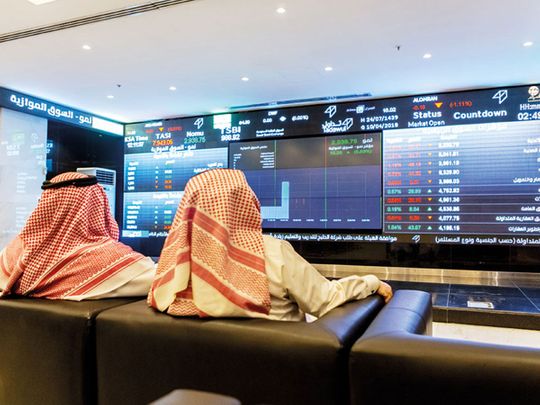
The Gulf’s stock markets have shown sharp variations in their performance in the recent past, with some making it to the status of ‘emerging markets’ with their ability to attract local, foreign and institutional investors.
A common thread among the region’s bourses is a genuine interest to increase their contribution to national development. This is most apparent with the UAE and Saudi markets, where IPOs are emerging like never before. Others should learn a thing or two from this, and not be deterred in efforts to open up their markets to all.
In Saudi Arabia and UAE, we see a thirst for IPOs among investors due to the availability of ample funds looking out for suitable investment channels. In addition, there is the external interest to invest in Gulf companies due to the existence of investment laws, commercial courts and political stability.
In its IPO, DEWA offered 9 billion shares, worth Dh22.3 billion, representing 18 per cent of the issued share capital, and the Dubai government retaining 82 per cent. The IPO attracted a number of institutional funds and 65,000 retail investors to raise a hefty Dh315 billion. The order book for the IPO was 37 times oversubscribed, making it the second-largest IPO in the history of the region, in yet another achievement reflecting the confidence in the UAE economy. This is not an isolated happening - ADNOC Drilling’s IPO proved much the same when it raised $1.1 billion at the end of last year.
Saudi IPOs lead the way
In Saudi Arabia, 13 companies were recently offered for public subscription, and another IPO is scheduled for May. These IPOs included various sectors, such as power and petrochemicals. And who can forget the largest IPO in history from Aramco in 2019, whereby it raised $25.6 billion compared to $25 billion raised by the China’s Alibaba in 2014.
As for the rest of the GCC countries, IPOs were limited to one company each in Kuwait and Oman. Kuwait’s Ali Al Ghanim Company is expected to offer 45 per cent of its shares in May, while Oman’s Barka Desalination Co. (BDC) offered 15.1 million shares for public subscription in January and collected 4.8 times the required amount, which highlights the financing capabilities to launch more stock market forays.
However, the Bahraini market has not seen any new IPOs in this period, but in Qatar, capital market activity was limited to increasing the capital of Qatar First Bank by offering an additional 420 million shares at the beginning of this month to raise QR1.12 billion.
Entirely UAE and Saudi driven
This highlights the fact that IPOs are leading the way in the UAE and Saudi Arabia, but are almost absent in other GCC countries. This is not due to the lack of liquidity or the lack of investment opportunities, but rather to the absence of initiatives from entities responsible for IPOs, which is a major defect that must be addressed.
The GCC countries have a conducive environment for developing public shareholding companies, in addition to creating investment opportunities that can attract local and foreign private capital and individuals’ savings to pump them into the veins of the Gulf economies. This is a priority to serve the strategic goal of diversifying sources of national income.
In this regard, the current conditions can be harnessed to attract such investments, firstly due to the significant rise in oil prices, and the great liquidity that it provides. And second, because of the geopolitical situation in the world, which led to the inflow of huge funds into the Gulf. These require new initiatives to take advantage of such rare opportunities.











